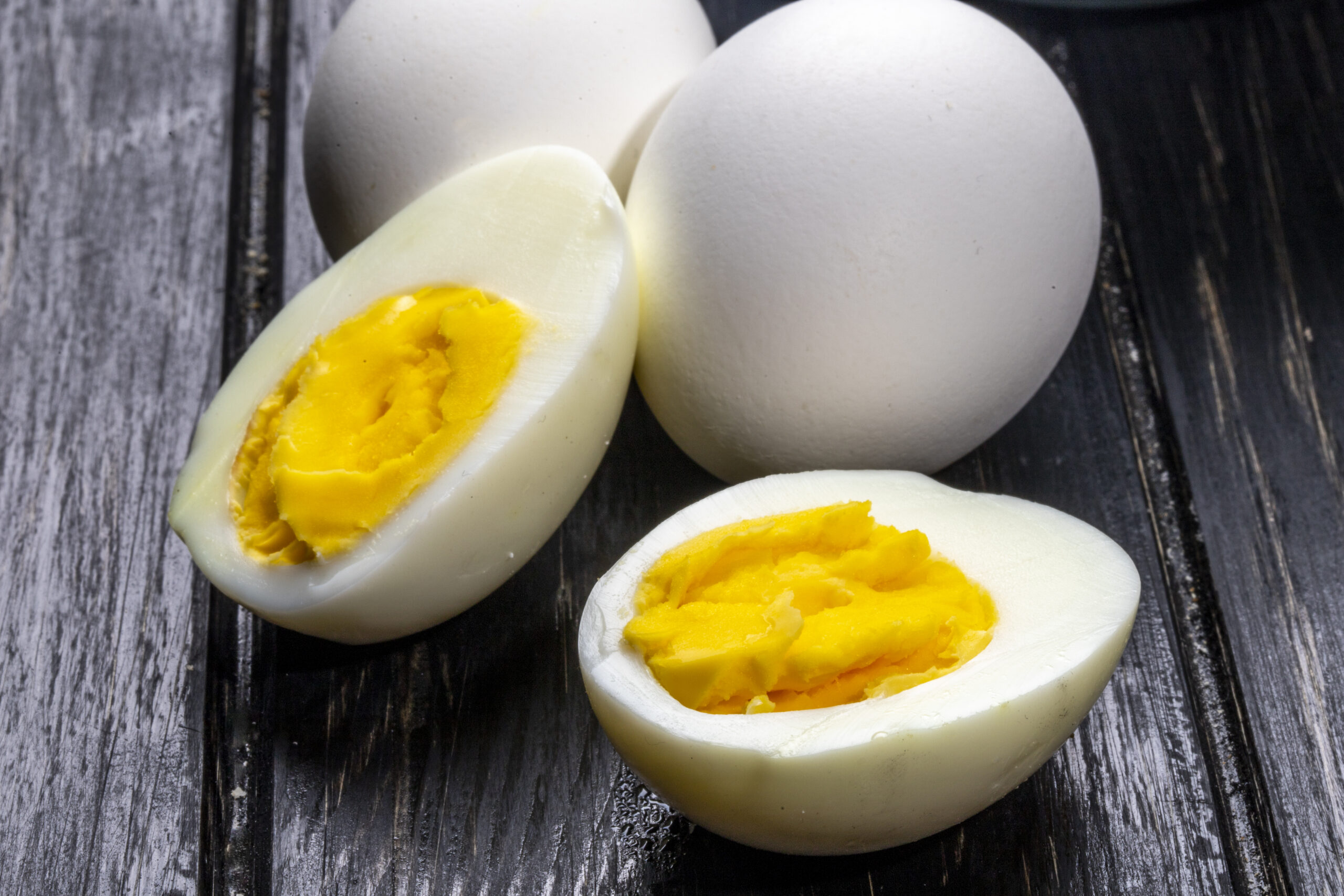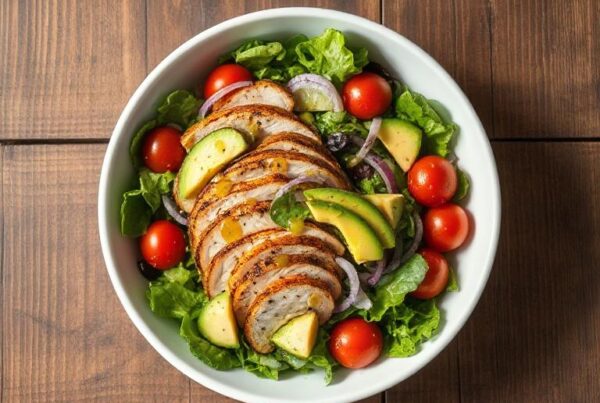The Perfect Boiled Egg: Tips and Tricks from a Professional Chef

Boiling an egg may seem like a simple task, but there’s an art to boiling the perfect egg. Whether you’re making egg salad, deviled eggs, or just a simple snack, a perfectly boiled egg can make all the difference. In this article, we’ll share some tips and tricks from a professional chef on how to boil the perfect egg.
Read More: Marinated Turkey Tips in the Oven: A Delicious and Easy Recipe
4 Foolproof Methods for Boiling Eggs
Here, we’ll explore four foolproof methods for boiling eggs and discuss the pros and cons of each.
Method #1: Classic Boiling
The classic method of boiling eggs involves placing them in a pot of boiling water and cooking for a specific amount of time. This method is straightforward and requires only a pot, water, and eggs. The key is to control the heat and timing to achieve the desired consistency. For soft-boiled eggs, cook for 5-6 minutes, for medium-boiled eggs, cook for 7-8 minutes, and for hard-boiled eggs, cook for 9-12 minutes.
Method #2: Steaming
Steaming eggs is a gentle cooking method that can produce consistent results. To steam eggs, place them in a steamer basket over a pot of boiling water and cover. Cook for 6-7 minutes for soft-boiled eggs, 9-10 minutes for medium-boiled eggs, and 12-13 minutes for hard-boiled eggs. Steaming eggs can yield a creamier texture and make them easier to peel.
Method #3: Sous Vide
Sous vide is a cooking technique that involves sealing the eggs in a plastic bag and cooking them in a precisely controlled water bath. This method can produce eggs with a custard-like texture and a consistent yolk. To cook sous vide eggs, set the water bath to the desired temperature (for example, 63°C for soft-boiled eggs, 70°C for medium-boiled eggs, and 75°C for hard-boiled eggs) and cook for 45-60 minutes.
Method #4: Instant Pot
The Instant Pot is a popular kitchen gadget that can also be used to boil eggs. To use the Instant Pot, add a cup of water to the pot, place the eggs on a trivet or steamer basket, and cook on high pressure for 5 minutes for soft-boiled eggs, 6 minutes for medium-boiled eggs, and 8 minutes for hard-boiled eggs. Quickly release the pressure and transfer the eggs to a bowl of ice water to cool.
Common Mistakes to Avoid When Boiling Eggs
Boiling eggs may seem like a simple task, but there are several mistakes that can lead to less-than-perfect eggs. Overcooked or undercooked yolks, difficult-to-peel shells, and off-flavored eggs are just a few of the common issues that can arise. Here are some common mistakes to avoid.
➝Overcooking or undercooking the eggs
➝Not letting the eggs come to room temperature before boiling
➝Using old eggs that can have off-flavors and are more difficult to peel
➝Not adding enough water or salt to prevent sticking and cracking
➝Peeling the eggs too soon or too late for a messy or difficult-to-peel egg.
How to Boil Eggs for Optimal Nutrition?
Eggs are a nutrient-dense food that can be a great addition to a healthy diet. Boiling eggs is an easy and convenient way to prepare them, but did you know that the way you boil them can affect their nutritional value? In this article, we’ll explore the importance of nutritious eggs, how to choose the right eggs, and how to boil them for optimal nutrition.
➤Importance of Nutritious Eggs
Eggs are a good source of protein, vitamins, and minerals. They contain amino acids that are essential for building and repairing muscles, and choline, which is important for brain health. Eggs are also rich in antioxidants that protect the body from damage caused by free radicals. But the way you cook them can affect their nutritional value.
➤Choosing the Right Eggs
To get the most out of your boiled eggs, it’s important to choose high-quality eggs. Look for eggs that are labeled organic, pasture-raised, or free-range. These types of eggs are produced by hens that are allowed to roam freely and eat a natural diet, which can result in eggs with more nutrients.
➤Boiling Methods to Retain Nutrients
Boiling eggs can cause some nutrient loss, but there are ways to minimize it. To retain the most nutrients, use the gentlest method possible. Avoid boiling eggs for too long or over high heat, which can cause the proteins to denature and the nutrients to break down. A good rule of thumb is to simmer the eggs for about 7-10 minutes, depending on your desired consistency.
FAQs
Q: How do you boil an egg perfectly?
A: To boil an egg perfectly, start by placing the eggs in a single layer in a saucepan. Add enough water to cover the eggs by about an inch. Place the saucepan on the stove over medium-high heat and bring the water to a rolling boil. Once the water is boiling, reduce the heat to low and let the eggs simmer for the desired amount of time. After that, transfer the eggs to an ice bath to stop the cooking process. Finally, peel and enjoy your perfectly boiled egg.
Q: How long should a perfect egg boil?
A: The cooking time for a perfect boiled egg depends on your desired level of doneness. Here are some general guidelines:
– Soft-boiled eggs: 4-6 minutes
– Medium-boiled eggs: 7-9 minutes
– Hard-boiled eggs: 10-12 minutes
Q: Should you boil eggs for 20 minutes?
A: Boiling eggs for 20 minutes is not recommended, as it will result in overcooked eggs with a greenish-gray yolk and a rubbery texture. For hard-boiled eggs, a cooking time of 10-12 minutes is usually sufficient.
Q: Does it take 30 minutes to boil an egg?
A: No, it does not take 30 minutes to boil an egg. Boiling an egg for such a long time would result in an extremely overcooked egg. For hard-boiled eggs, a cooking time of 10-12 minutes is typically recommended.
Q: Is 7 minutes enough to boil an egg?
A: Yes, boiling an egg for 7 minutes is generally enough to achieve a medium-boiled egg. The yolk will be partially set, while the center will still be slightly soft. Adjust the cooking time based on your preference for a softer or firmer yolk.
Q: Should I boil eggs for 10 minutes?
A: Yes, boiling eggs for 10 minutes is a common cooking time for hard-boiled eggs. This will result in a fully cooked yolk with a slightly soft, creamy texture. Remember to adjust the cooking time based on your desired level of doneness.
Q: What’s the secret to boiled eggs?
A: The secret to boiled eggs lies in the cooking process. Start with room-temperature eggs, as they are less likely to crack when placed in boiling water. Use a gentle simmer rather than a rolling boil to prevent the eggs from bouncing around and cracking. After boiling, transfer the eggs to an ice bath to stop the cooking process and make them easier to peel.
Q: How do you boil eggs like a pro?
A: To boil eggs like a pro, follow these tips:
1. Use room-temperature eggs.
2. Place the eggs in a single layer in a saucepan.
3. Add enough water to cover the eggs by about an inch.
4. Bring the water to a gentle simmer, not a rolling boil.
5. Adjust the cooking time based on your desired level of doneness.
6. Transfer the eggs to an ice bath after boiling to stop the cooking process.
7. Gently tap and roll the eggs on a hard surface to make peeling easier.
Q: Do you boil water before boiling eggs?
A: Yes, it is recommended to boil the water before adding the eggs. Start by placing the eggs in a saucepan, then add enough water to cover them by about an inch. Place the saucepan on the stove over medium-high heat and bring the water to a rolling boil. Once the water is boiling, you can reduce the heat to low and add the eggs to start the cooking process.
Conclusion
Boiled eggs are a nutrient-dense food that can be a great addition to a healthy diet. To get the most out of your boiled eggs, choose high-quality eggs and use a gentle boiling method to retain the most nutrients. Boiled eggs can be enjoyed on their own or used in a variety of dishes for a nutritious and satisfying meal. By following these tips, you can enjoy boiled eggs that are not only delicious but also packed with nutrients.







